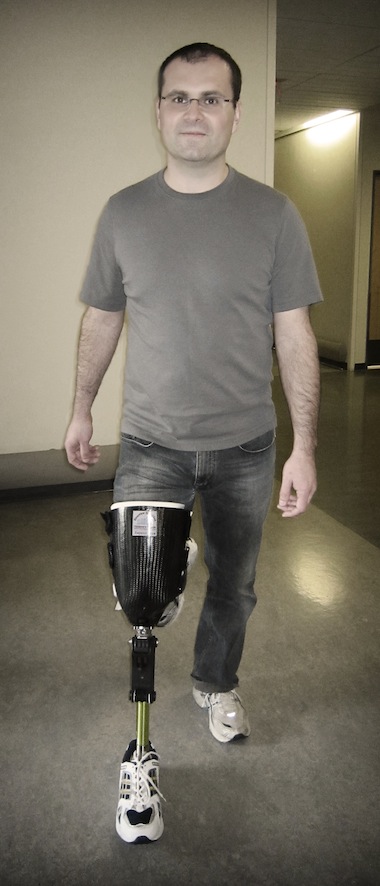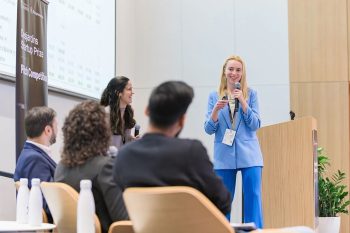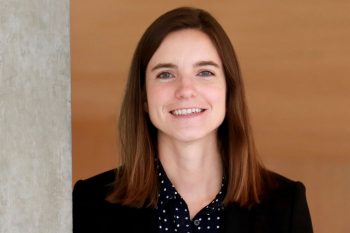At a one-day conference held at the Bahen Centre for Information Technology April 22, researchers from across the University of Toronto came together to discuss an issue of global proportions: health.
What emerged was a snapshot of the kinds of thoughtful, innovative solutions that U of T professors are cooking up, with the help of community partners, to help developing nations achieve cost-effect, lasting solutions to some of the world’s greatest health challenges.
Professor Shana Kelley has been developing a sensor that detects multiple diseases in a single test.
“We’ve been working with the US Department of Defence and DARPA,” said Kelley, who is also Director of Biomolecular Sciences, cross-appointed to the Institute of Biomaterials & Biomedical Engineering (IBBME). “They said, now give us something that can detect everything.” The resulting technology can rapidly detect up to 20 different pathogens and 10 types of antibiotic resistance on one chip, and can sell for as low as $5.
Public health, though, is about comprehensive solutions. Professor Yu-Ling Cheng (ChemE), Director of the Centre for Global Engineering, has been working with the Gates Foundation to develop innovative strategies for a leading cause of death in developing nations: sanitation.
According to statistics released by the United Nations, over 1 billion people currently lack clean water, and 2.6 billion lack adequate sanitation. Of those, 3.6 million people die from sanitation-related illnesses each year – including an estimated 1.8 million children.
Cheng, whose team is currently perfecting a prototype of a toilet that will incinerate waste, argued that “until you do something you really don’t know what challenges you’ll face.”
Professor Cheng’s challenges in building a better toilet taught her the value of community partners to understand the variables of public health problems, from the way flooding can cause pit toilets to flow right up to the steps of peoples’ homes to the fact that different cultures need to embrace the new technologies.
“Once you get real partners, you get a real sense of the problems you’re facing,” Cheng added.
Dr. Clare Pain, Associate Professor in the Department of Psychiatry, has been working closely with community partners in Ethiopia to create a residency program for mental health professionals in that country. The results of the program has seen a sharp increase in practising professionals, and a 97 per cent retention rate of new practitioners in a country that has historically carried only 2,000 doctors for 60 million people.
There are real-world consequences to these programs, Pain pointed out, where “with minimal interventions,” schizophrenics can go from being chained in their huts to living productive, active lives. But, she said, “Ninety-nine per cent of your success is the quality of the partnerships you develop.”
“In dealing with global health issues, the goal is to provide simple solutions with large potential impact,” Jan Andrysek, Scientist at the Bloorview Research Institute, Holland Bloorview Kids Rehabilitation Hospital and Assistant Professor at IBBME, said. Andrysek’s low-cost artificial knee is one of several discussed during the day that was funded through Grand Challenges Canada, a competition that asks the country’s greatest thinkers to develop high-impact solutions to some of the world’s most pressing health and development challenges.
Peter Zandstra, IBBME Professor and co-organizer of the symposium, argued that part of the challenge of finding lasting solutions to global health issues lies in understanding the shifting nature of world health priorities.
“Infectious diseases were once highest on the list of mortality rates for developing nations,” Zandstra said, “but by 2030, cancers and ischemic heart disease may be leading causes of death in many of these countries as well as for high income nations like our own.”



